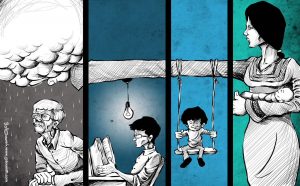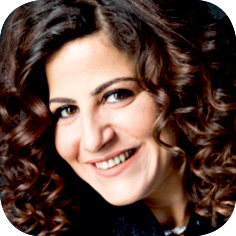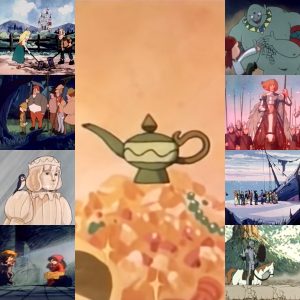When I was a child growing up in East Jerusalem, my knowledge about the world drew more on folktales than history lessons. Our school curriculum, which was authorized by the Israeli occupation, didn’t provide lessons about the history of Palestine or the world. Instead, it mainly focused on consecutive Islamic caliphates. Fortunately, we had the old Japanese animated series from the late seventies, which offered more than 150 tales from around the world. This series, which was dubbed in Arabic, was my first window to the outside world.
I first got to learn about Europe through these stories and its cartoon characters. I understood at an early age how much we have in common, with all our positive and negative human traits. I grew up with curiosity about this continent, especially since it’s closer to Palestine than many other places, and I discovered much about its history, literature, society, and arts. Granted, I can’t homogenize all of Europe and Europeans, but I can say that despite the differences, Europe has evolved to highlight commonalities to define its values, politics, economy, literature, cinema, art, etc.

I often wondered what tale or more the world tells about us. The Japanese series only included one episode from the Arab world – not exactly from Palestine. That one tale was, of course, Aladdin and the Magic Lamp. Be sure, such a lamp only exists in this one story. The foundation of every story we tell, wherever we are in the world, is based on a hero and a problem, and the journey to solve it makes the story. Magic is not always there to answer every problem we have, precisely because our stories are less about the problem and more about who we are and how we identify and connect with one another, share ideas and ideals, entertain and educate, and inspire each other’s thinking and actions.
People stories, in folktales and movies, have greatly contributed to my understanding of Europe and my appreciation of its values, culture, and people. But not its politics – specifically when it comes to Palestine. Palestinians are more than news headlines: we are the heroes in our story towards freedom – not the problem. Palestine is where we are and who we are; it is the embodiment of the different ways we celebrate life with our loved ones, pursue our dreams, rejoice in our accomplishments, resist the injustices that befall us, deal with anger and pain, and worry about the future of our children. What future then do we have when we Palestinians continue to be subjected to a belligerent military occupation? What future is there for humanity when there is in Europe’s backyard an apartheid regime that stands at odds with Europe’s respect for human dignity, human rights, freedom, democracy, equality, and the rule of law?
So, here’s my Catch-22 with Europe: Why does Europe find more in common with our occupier than with us? Which window in Europe do we need to open in order for Europeans to learn anew about the land and people of Palestine? What would it take for Europeans to identify with Palestine without the politicking that uses accusations of incitement, violence, or otherwise and, instead, see Palestine and Palestinians through our shared values, specifically, the belief that we are all born free and equal in dignity and rights?
I have no doubt that Palestine’s story will end with freedom. The question is, How? This story will one day be written in history books and narrated through folktales and beyond. I wonder what Europe’s part will be in this story. While it’s still being inscribed today – particularly at this precarious junction whereby international norms and principles are being threatened by the ideology of colonization, oppression, and hegemony – Europe’s part in the quest for freedom in Palestine, as I see it, has two possible trajectories: to be defined as part of the problem if Europe continues to sit idle and wait for something to happen or someone else to act, or for Europe to stand up for its own values with courage and persistence, and be part of the solution and the journey that creates the story we all should aspire to write in order to inspire future generations.
Europe should make no mistake: Aladdin’s Lamp will not just appear to solve this.



